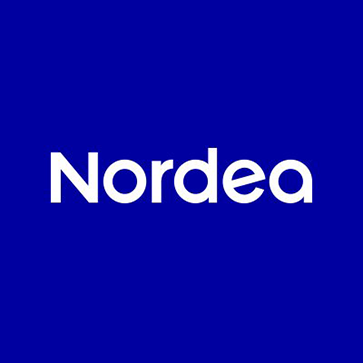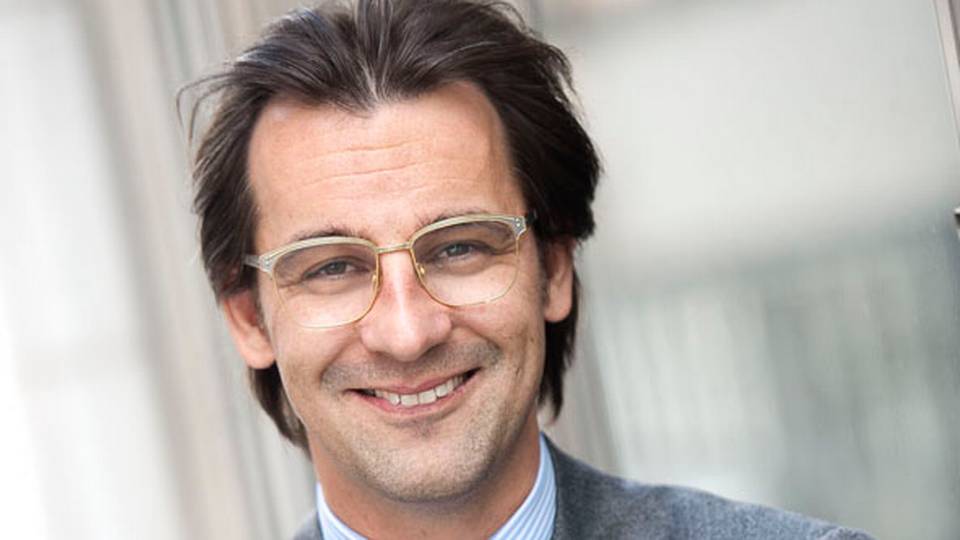Pinch, Push, and Shift…
Nordea Asset Management
Nordea Asset Management takes returns-with-responsibility to a new level to ensure competitive, consistent, and responsible returns on all funds.
All Nordea Asset Management’s products now include environmental, social, and governance (ESG) data as one of the factors used in assessing investments. The aim is to ensure better and more consistent returns on customers’ investments.
Environmental, social, and governance issues are increasingly a source of both risk and opportunity. Therefore, we seek to integrate ESG issues into our investment analysis methodology. Potentially, this is a source of better performance and, at the very least, it is a way of controlling risk in an investment portfolio. Good returns for our customers are the focus of Nordea Asset Management which necessitates taking ESG issues into account in all the company’s investment products.
This has the added advantage of increasing transparency. Nordea Asset Management customers will know at all times how ESG issues are handled. This information can in turn be passed on to the customers’ stakeholders as part of their communication on how money is being invested. “Money that has been earned in a responsible way should also be invested in a responsible way,” says Allan Polack, CEO of Nordea Asset Management.

Whilst financial markets globally have undergone substantial stress and change, an increasing number of mainstream investors see ESG (Environmental, Social, and Governance) integration as a way to improve their long-term financial performance and to respond to increased client demand for sustainable investments.
This trend offers companies opportunities to attract long-term investors whilst, at the same time, reduce shareholder turnover by aligning their investment strategy with the real needs of their business and laying down the foundation for a sustainable future. Asset owners see ESG integration as an opportunity to generate long-term performance while fulfilling their fiduciary obligations, whilst investment managers see it as a way to improve risk management in the financial performance of their investment portfolio.
For listed companies, long-term investors constitute a more attractive investor base. First, compared to short-term investors, they generally invest over a period of time that is better aligned with companies’ business cycles and long-term sustainability strategy. Second, by holding shares over a greater period of time, long-term investors reduce share turnover, which is costly for companies. Whilst short-term investors have exacerbated what Dominic Barton at McKinsey calls ‘quarterly capitalism’, long-term investors allow companies to reconnect investment strategies with the real needs of their business.
Nordea Asset Management believes that aligning ESG issues with core business agendas can help companies create shareholder value in three measurable ways.
Pinch
Downside risks should be reduced or ‘pinched’, especially in a global marketplace that is increasingly volatile, resource-constrained, and socially engaged. One way to do this is by integrating ESG and financial reporting, which can increase transparency, improve understanding of ESG risks, and help drive targeted mitigation strategies.
Improved transparency can also help build trust with customers, investors, and employees; creating a halo effect that makes it easier for a company to earn forgiveness when things go wrong, and obtaining extra credit for the things it is doing right.
Push
Companies can also leverage social and environmental issues to create new product and service innovations that drive revenue and reduce operating costs. Deloitte’s research on innovation shows that leaders on ESG issues are over 400% more likely to be considered innovation leaders.
Shift
Weaving ESG factors into the fabric of a company can improve shareholder value over time by permanently shifting the expected share price to a higher level, creating a valuation premium. Part of this shift comes from pinch and push, which strengthen a company’s brand, reduce risk, and fuel innovation. Another part comes from improved operating efficiency and reduced waste, which can significantly reduce costs and increase profitability.
In addition, a strategic approach to ESG issues can boost a company’s value by helping attract financial and human capital. Responsible enterprises attract more funding and enjoy a lower cost of equity capital than their less responsible counterparts. They also have an easier time attracting talent – especially younger workers, who tend to be particularly conscious of social and environmental issues. These effects can help create a lasting competitive advantage.
Growing consensus indicates that ESG analysis adds value to investments. For asset owners, ESG integration may soon reach a tipping point: There is good reason to think that ESG considerations will become a regular component of investment decision-making in the future.
The process developed at Nordea Asset Management is now gradually being implemented. It offers an approach that is considered particularly promising, although it will take time to obtain the full results and conclusions of the ESG integration effort.
Leveraging ESG Analysis
Nevertheless, it is the stated ambition of Nordea Asset Management to leverage ESG analysis and engagement solutions in order to embed ESG across all investments processes. The company is committed to assisting clients with the adoption of responsible investment strategies that enhance long-term investment performance.
Today, Nordea Asset Management offers an opportunity to steer investments towards the future and once again rebuild portfolios for the long term. Responsible investments will create opportunities and rewards, but it will also mean challenging the pernicious orthodoxy of ‘short-termism’. As an inflection point in the global economy and the global environment is reached, the imperative for change has never been greater.

Sasja Beslik
Calling Things by
Their Proper Name
Sasja Beslik, head of responsible investment and governance at Nordea Bank, spends a fair chunk of his time on the road visiting projects around the globe to evaluate environmental and social impacts.
Much more than the latest fad, to Mr Beslik the concept of responsible investment is part and parcel of asset management. It is also ingrained into Nordea’s corporate DNA. “Responsible investment is a long-established tradition at our bank, as indeed it is throughout the Nordic World. We believe in the power of sustainable investments as a tool to contribute to the well-being of future generations,” explains Mr Beslik.
“Worldwide, the investment landscape has changed. As an angle for investors to consider, sustainability is here to stay. The question that remains is how the concept will be implemented.” Mr Beslik recognises sceptics abound and may argue that incorporating ESG (Environment, Social, and Governance) parameters into investment decisions detracts from the bottom line. “Cynics may have different views and that is just fine. As it happens, we believe that when looking at risks that could affect the return on investment, sustainability must enter into the mix.”
At heart a do-gooder with a pronounced penchant for the pragmatic, Mr Beslik cannot easily be dismissed as a tree-hugger in a suit. “I am not bound to my desk or spend my days shuffling around paper. At Nordea, we take a hands-on approach and this means that I’m travelling on average around 130 days a year to visit projects in the field and see what companies are actually doing on the ground.”
Most Influential Pro
Mr Beslik was trained as a journalist and economist. A war correspondent for a few years, he has seen perhaps more than his fair share of human suffering. “At a certain point I became too involved with what I was seeing and wanted to do something more than just report.” After a stint as a consultant on ethical and social issues for a number of multinational companies, Mr Beslik joined ABN AMRO Asset Management as global head of engagements before arriving at Nordea.
In 2007, Sasja Beslik was voted Sweden’s most influential young professional under 40. In 2013, he was knighted, receiving the Royal Order of the Seraphim from King Carl XVI Gustaf.
Mr Beslik has come a long way since stepping off the ferry in Ystad, South Sweden, in 1993 with about twenty Deutschmark in his pocket and a plastic bag containing his meagre belongings. On the run from the Bosnian Army that had ordered him into its ranks as cannon fodder, Sasja Beslik was looking for a new home and found it in Sweden.
Even as a banker, Sasja Beslik has not lost the ability to speak frankly and call things by their proper name. “Climate change poses a bigger threat to humanity than terrorism. I have little patience with business leaders that talk the talk but refuse to walk the walk. Quite frankly, I’m not at all interested in chatter about values. I need to see how these values are applied to actions, products, and services. My generation is tired of hearing bullshit. If some mobile phone manufacturer goes on-and-on about sustainability, yet fails to produce a single eco-friendly phone, I cannot take them too seriously.”
No Business an Island
Mr Beslik also does not accept arguments put forward by some financiers that sustainability is ‘fuzzy’ or bad for growth: “The progress of time, and the resulting change in values, bothers some people. I call them the 80s Generation. They see corporations merely as vehicles that produce profits for their owners. However, a business is not an island, but part of the wider community. In fact, companies that are in tune with the times, and behave in a socially responsible manner, tend to produce larger profits. There are plenty of examples that prove this.”
Nordea may be a case in point. The bank weathered the storm unleashed by the 2008 global financial meltdown deftly without incurring the mega-losses that had other financial institutions creak at the seams. “The philosophy imposed by Nordea’s top management paid off handsomely at that time and was shown to be extremely valuable in averting risk.”
Cover photo: Nordea corporate headquarters in Copenhagen, Denmark.
© 2017 Photo Nordea offices by Adam Mork


